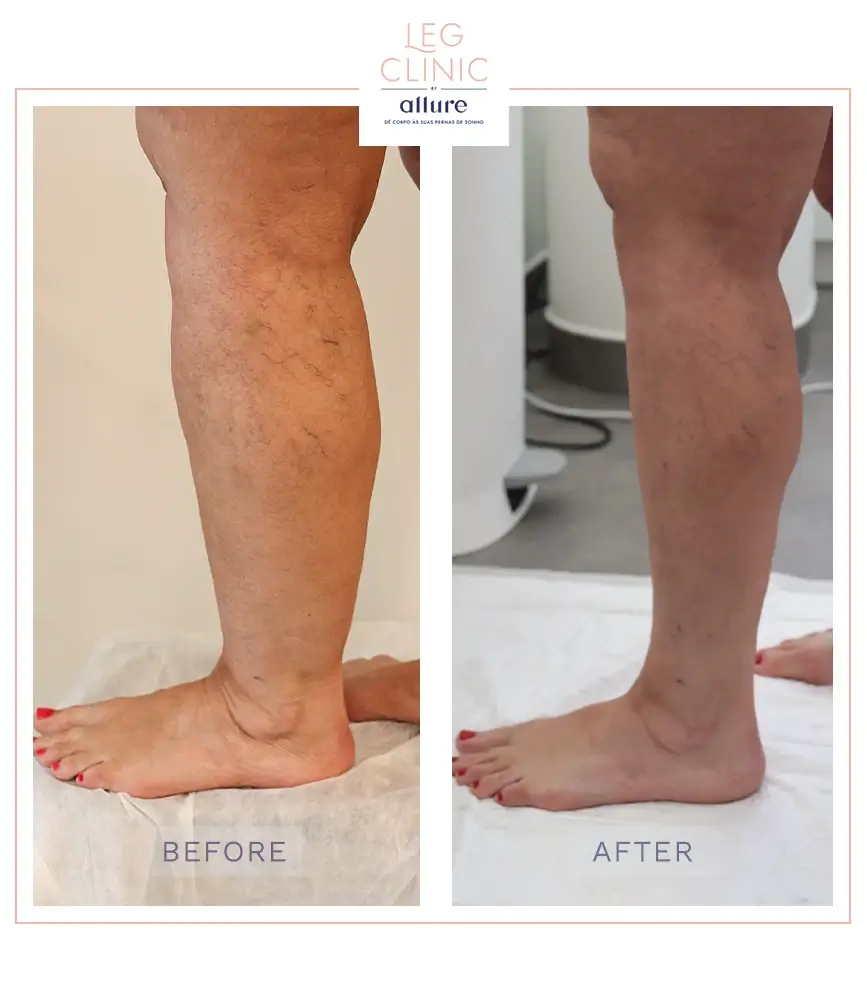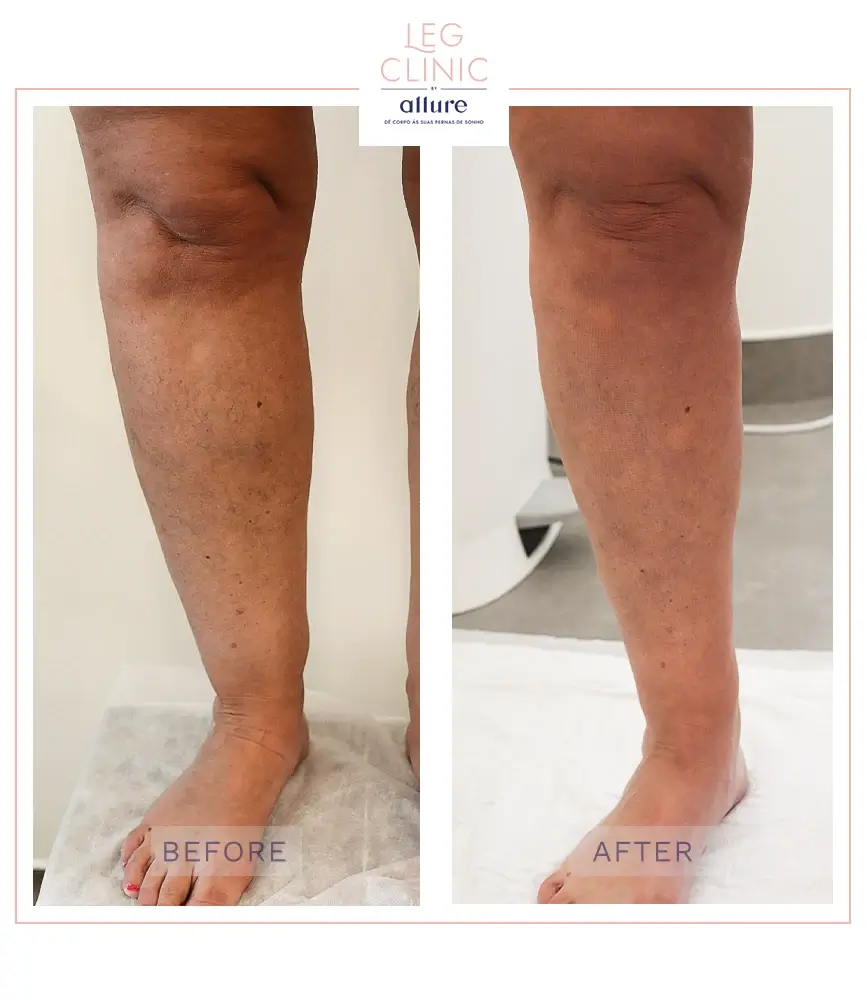
Lipedema: what is it?
Lipedema is a condition which is characterized by a disproportionate accumulation of fat in the extremities, most commonly in the lower limbs; in 30% cases, it can involve the upper limbs. It occurs symmetrically (both legs, both thighs, or both arms) and always spares the feet and hands, which do not experience the increase in volume.
Sometimes confused with obesity, this disease is little-known, underdiagnosed and very neglected by healthcare professionals. Patients report that they are unable to lose volume in their legs, despite their commitment to strict diets and the weight loss they achieve, thanks to volume loss in other areas of the body. They often appear discouraged and frustrated because their condition is seen as obesity (or even fluid retention), and its lack of resolution is attributed to "lack of effort."
Many patients suffer from Lipedema for years without knowing it. Beyond the importance of early diagnosis and treatment, it is crucial to understand that this is a genetic, chronic condition that fluctuates according to various factors (hormones, stress, anxiety, nutrition, among other triggers identified in each individual case).
Although it may seem like a new, recently discovered disease, Lipedema was first described at the Mayo Clinic by Allen and Hines in 1940.
Dr. Joana de Carvalho and Professor Sérgio Sampaio are leading physicians in the diagnosis and treatment of Lipedema. They keep abreast of all developments in the knowledge of the disease promoted by the international scientific community, such as World Lipedema Congress, held in Potsdam (Berlin, 2023).
Recently, Dr. Joana de Carvalho was present as a specialist in Lipedema (Portugal) at the Lipedema International Symposium (SCIENCE2025), took place in São Paulo (Brazil).
The four stages of Lipedema
If the disease is left untreated, symptoms can worsen over the years. This is a disease that can progress through 4 different stages:
- Stage I: the skin is smooth/soft, with mild pain and less frequent bruising; swelling increases during the day and may decrease with rest and elevation of the limbs; lymphatic drainage produces great results; responds well to treatment.
- Stage II: the skin's surface becomes uneven, resembling the texture of cellulite; pain and bruising are more frequent; edema increases during the day, with partial improvement after rest and limb elevation; may respond well to treatment.
- Stage III: connective tissue is hardened; presence of pain, postural changes and edema present and persistent; large areas of overlapping fat; less responsive to some treatment modalities.
- Stage IV: fibrosclerosis, possibly associated with lymphedema; consistent edema present; all symptoms increased in addition to disabling changes in quality of life; large areas of overlapping fat; also known as lipolymphedema; less responsive to some treatment modalities.
The five types of Lipedema

The disproportionate distribution of fat typical of Lipedema is divided into five types, according to the affected area. Some patients may be classified as having more than one type:
- Type I: Pelvis, buttocks and hips;
- Type II: from the buttocks to the knees, with the presence of adipose tissue on the sides and lower part of the knees;
- Type III: Glutes to ankles;
- Type IV: Arms;
- Type V: Lower leg.
Causes
This disease affects women exclusively. Although a cause has not been definitively established, it suggests a significant hereditary component, linked to the female sex.
In fact, in most cases, there is someone in the family with the same problem; therefore, patients often report in consultations: "this leg shape runs in the family."
Also the onset of the disease and/or its worsening is noted at times in women's lives characterized by sudden and significant hormonal changes such as: puberty, the start of oral contraceptives, pregnancy and, in more advanced stages of life, menopause.
Lipedema also appears to be related to a chronic low-grade inflammatory response to potential food toxins. The truth is that food processing has evolved tremendously in recent decades, and our bodies haven't been able to keep up. Thus, along with other conditions such as irritable bowel syndrome or chronic pain syndromes, it can be a form of defense and alert for our body.
Far from being a merely aesthetic condition, the progression of this “fat legs” disease can lead to significant decline in quality of life and difficulties in walking due to changes in the joints.

Lipedema: Symptoms
In addition to the disproportionate accumulation of fat, this disease is accompanied by:
- A sensation of weight and tiredness in the legs;
- pain and an exaggerated sensitivity to touch, according to the state of inflammation believed to characterize the disease;
- A sensation of coolness in the skin of the legs;
- Easy and frequent bruising (ecchymoses).
Lipedema Photos: Before and After


Lipedema surgery of the leg, WAL technique, 3 months after intervention


Treatments for Lipedema
Once the condition is confirmed, an individual treatment plan is created, which may be a conservative treatment (including an anti-inflammatory diet plan, appropriate physical exercise, massage, drainage, and supplementation), or, as a last resort, resorting to Liposuction specific to Lipedema, once the condition is stable, to control symptoms, reduce volume, and improve quality of life and self-esteem.
There are several specialties that make up the multidisciplinary team Lipedema treatment:
- Vascular Surgery – diagnosis;
- Nutrition – anti-inflammatory diet;
- Nutrigenetics – identification of foods and agents that may be behind the inflammatory process and suggestion of appropriate supplementation;
- Dermatofunctional Physiotherapy – pre- and post-operative drainage, facilitating recovery and enhancing the quality of results;
- Plastic surgery – Liposuction specific for Lipedema.
Conservative Treatment of Lipedema
There are several measures non-invasive that can be adopted to improve not only the aesthetic aspect, but also complaints of pain and discomfort.
Just like the physical exercise, Nutrition It is one of the pillars of conservative treatment for Lipedema and, although it does not have a direct influence on the disproportionate distribution of fat, changing eating habits can be an added value in reducing pain and inflammation, improving prognosis and quality of life.
Through the Nutrigenetics, your genetic profile can be assessed, allowing you to understand your unique biochemistry and physiology. This knowledge allows you to define the most appropriate strategy for each patient.
THE Physiotherapy It plays a very important role in the conservative and post-operative treatment of this disease, to treat and alleviate the discomfort caused by Lipedema.
Surgical treatment of Lipedema
Surgical treatment of Lipedema is indicated when, despite conservative treatment, symptoms persist and significantly interfere with quality of life.
Surgical techniques for lipedema are specific and must be performed by surgeons with experience and knowledge of the disease. Existing techniques include liposuction and the reduction surgery.
Medical Specialist
in Lipedema
Dr. Joana de Carvalho
- Graduated from the Faculty of Medicine of the University of Porto
- Specialist in Angiology and Vascular Surgery
- Fellow of the European Board of Vascular Surgery
- Member of the College of Phlebology

Specialist Doctor
in Lipedema
Prof. Doctor Sergio Sampaio
- Graduated from the Faculty of Medicine of the University of Porto
- PhD from the Faculty of Medicine of the University of Porto
- Specialist in Angiology and Vascular Surgery
- Fellow of the European Board of Vascular Surgery

Medical Specialist
in Lipedema
Dr. Filipa Jácome
- Specialist in Angiology and Vascular Surgery
- Master's Degree in Medicine, from the Abel Salazar Institute of Biomedical Sciences (ICBAS)
- Guest Lecturer at the Faculty of Medicine of the University of Porto (FMUP)
- She was awarded 5 scientific merit awards.

















